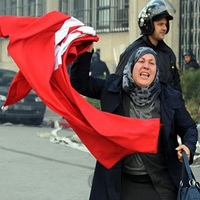History demonstrates that revolutions often result in new or renewed forms of despotism. One reason for caution regarding the future of the Arab Uprising is that few Middle Eastern countries have political pasts not dominated by monarchy, theocracy or the military. So previous rebellions ultimately enhanced rather than mitigated socio-political intolerance. After all, Iran's activist mullahs and al-Qaida's founders were the products of rebellions against monarchist totalitarianism, too.
It remains to be seen whether Egypt will become more democratic or return to military rule, or if the turbulence of the post-Mubarak period will open the door for the Muslim Brotherhood to gain power. The Brotherhood claims to have changed, but its leaders still speak of clashing with the U.S., the EU and Israel. Moreover, the Brotherhood did not renounce violence voluntarily. It was compelled to do so by a half-century of counterviolence directed at it by Gamal Abdel Nasser, Anwar Sadat and Hosni Mubarak. The latter used the threat of an Islamist takeover to justify his administration's excesses. The same danger may well be recycled by Egypt's High Military Council to rationalize a junta.
What holds for Egypt applies to Tunisia, too, with its Ennahda, or Renaissance, party. Yes, Tunisian society may appear to be regaining its normal day-to-day functioning, but the real tests for achieving enduring political freedom that avoids both theocracy and martial rule lie ahead. Again, organizational experience will favor Islamists and military men over secularists unless the latter swiftly enhance their cohesion and effectiveness.

